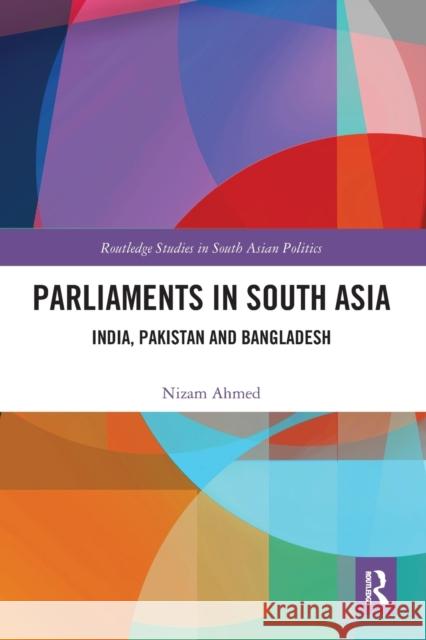Parliaments in South Asia: India, Pakistan and Bangladesh » książka
Parliaments in South Asia: India, Pakistan and Bangladesh
ISBN-13: 9781032400662 / Angielski / Miękka / 2022 / 242 str.
Parliaments in South Asia: India, Pakistan and Bangladesh
ISBN-13: 9781032400662 / Angielski / Miękka / 2022 / 242 str.
(netto: 195,06 VAT: 5%)
Najniższa cena z 30 dni: 196,40
ok. 22 dni roboczych.
Darmowa dostawa!
This book explores the development, decline and resurgence of parliaments in India, Pakistan and Bangladesh. Although the three parliaments formally have a common origin and follow almost similar rules and procedures, substantial variations can be observed in their behavior.
By analyzing the nature of memberships, processes of legislation and oversight of the executive, the book assesses the impact of Indian, Pakistani and Bangladeshi parliaments. In addition to identifying the ways in which different institutional actors, particularly the parliament and the judiciary, define their roles and relationships, the book investigates the role of committees and the significance and effect of female legislators. While showing that the parliament in India has had a steady growth since its inception, notwithstanding the allegation that it has declined in recent years, the author also demonstrates the differential performance of the parliaments in Bangladesh and Pakistan. In particular, the parliament in Pakistan is shown to likely be able to upgrade its status from a ‘minimal’ to at least a ‘marginal’ legislature, while the Bangladesh parliament risks becoming a ‘minimal’ legislature.
A valuable resource to use when comparing strategies and outcomes of postcolonial developments in the operation of parliaments, this book will be of interest to academics in the field of political and economic development, governance and South Asian Studies.
This book explores the development, decline and resurgence of parliaments in India, Pakistan and Bangladesh. Although the three parliaments formally have a common origin and follow almost similar rules and procedures, substantial variations can be observed in their behaviour.











